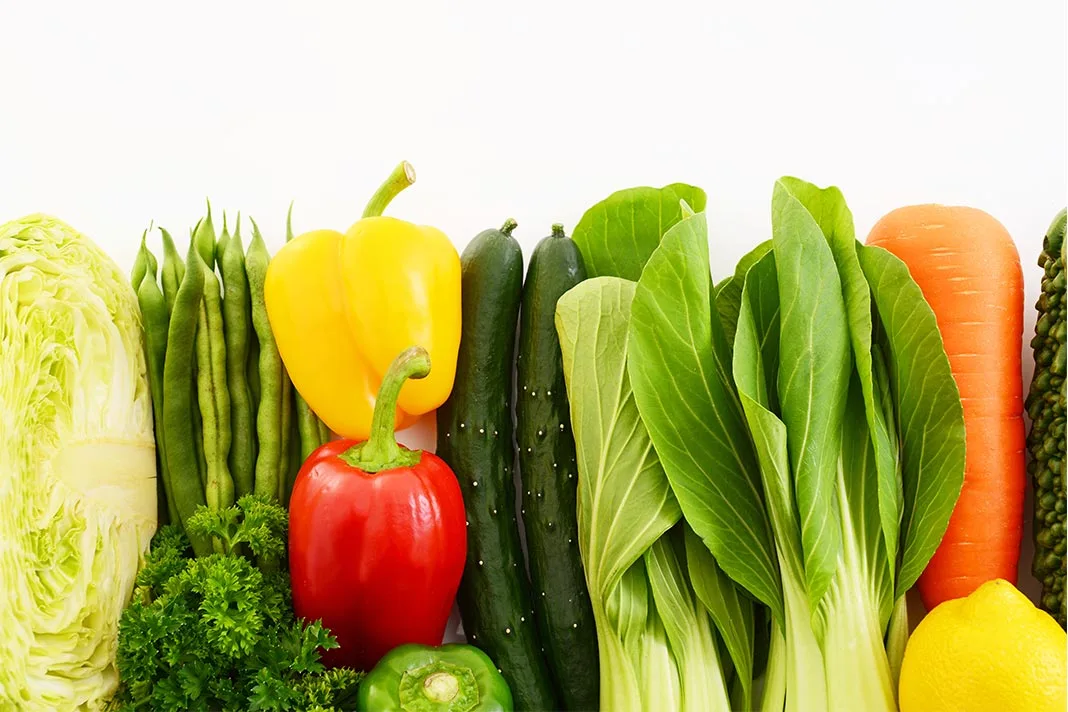Words Helen Brown
WHAT IS FLEXITARIANISM?
Twenty years ago, vegetarianism was scoffed at. The veggie option on even the best of menus consisted of salad and a bit of soggy aubergine. Maybe a risotto if you were lucky. However a seismic shift in attitudes means that veganism ranked as one of the biggest food trends of 2016. And the vegetarian options are now often the most tempting.
But veganism is not for the faint hearted – the strictest of vegans steer clear even of honey, since it essentially comes from an animal. This is where flexitarian comes in. As the name suggests, it is a more flexible option and far more realistic to slot into busy lives.
Flexitarians mainly eat a vegan or vegetarian diet – with the occasional inclusion of meat, fish and dairy. Maybe you cut out meat but go hell for leather at the cheese board. Or you eliminate dairy but love the occasional steak. If #MeatfreeMonday is your hashtag of choice, then flexitarianism is the lifestyle for you. The focus is on reduction, rather than abstinence.
THE FLEXITARIAN LIFESTYLE
Maybe that’s why the trend is perpetually growing. Around 35% of Brits now identify themselves as flexitarian. And with Stella McCartney, Gwyneth Paltrow and Jamie Oliver leading the fan-club, it appears to be more than just a passing fad. According to blogger Annabelle, of The Flexitarian, advocates of the diet make a conscious effort to reduce meat consumption for health, environmental and/or animal welfare reasons. There are no rules. Essentially flexitarianism should be about making smart food choices in general, on top of eating less animal products. Meat-free Monday is a great way to start.
WHAT ARE THE BENEFITS?
Vegetarian diets have long been used to help with weight loss and weight management. They’re also ideal for upping fibre intake and hitting that 5-a-day. But a flexitarian diet can also help combat several forms of chronic disease. Here are five reasons you may want to consider swapping your beef burger for beetroot.
1. It Lowers the Risk of Heart Disease
A 2015 study found that a semi-vegetarian diet effectively lowers the risk of heart disease and stroke. A study observed the diets of more than 450,000 Europeans over 10 years. Those who ate the most ‘pro-vegetarian’ diets had a 20% lower risk of dying from cardiovascular disease than those who ate more meat.
2. It’s Better for the Environment
Raising livestock and their byproducts accounts for over half of the world’s greenhouse gas emissions. That’s more than the combined emissions from the entire transport industry – planes, boats, trains, cars, trams and more. The less meat consumed, the happier the earth.
3. Cancer Prevention
One-third of all cancers can be prevented through lifestyle changes, including a healthy diet. Think in terms of colour and aim to eat the rainbow. This way, you will maximise your antioxidant intake. Antioxidants are essential in fighting off free-radicals, which are the main culprits in promoting cancer growth. A surge in your fibre intake also helps dispel the body’s free radicals. For every 10 grams of dietary fibre you consume, you reduce the likelihood of having a polyp in your colon by 9 percent. Good sources of fibre-filled, antioxidant-packed food include cruciferous, allium and carotenoid vegetables. Think broccoli, kale cabbage, carrots, sweet potatoes, tomatoes, onions, garlic, and leeks.
4. Glowing Skin
The flexi diet also comes with aesthetic benefits. An increase in the vitamins, minerals and antioxidants found in fruit and vegetables supports healthy hair, skin and nails. Cutting back dairy products, sugar and high glycemic foods will also result in skin worthy of a Victoria’s Secret Angel. Swap these products for carotenoid-packed vegetables. These dark green, red and orange foods are abundant in phytochemicals, which work to protect the plant and emit its radiant colour. Summer glow, here we come.
5. Good for the Gut
Plant-based foods support a diverse microbiome as they are rich in the healthy bacteria associated with good gut health. This, in turn, boosts your immune system, reduces inflammation and regulate ghrelin, the hunger hormone. Be sure to include fermented varieties of vegetarian foods, such as tempeh, sauerkraut and kimchi. This will diversify your gut bacteria and kick your good health into high gear.







